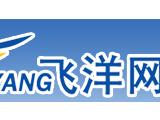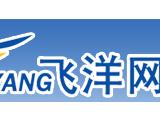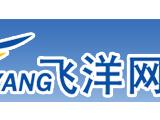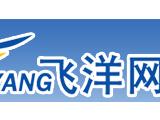Interns' Heartfelt Accusation: Tencent's Campus Recruitment Program is Disappointing
According to industry insiders on October 24th, Tencent was preparing for layoffs by the end of the year, mainly in client-side R&D. After the layoffs, they planned to increase investment in web-based games.
On October 26th, in response to rumors about large-scale layoffs at Tencent, the company's human resources department denied these claims, stating that Tencent would be recruiting over 2,000 university graduates globally in 2011, covering multiple fields such as product development, marketing, and design.
On November 2nd, a netizen published a long blog post detailing their experience of receiving an offer from Tencent, only to be classified as "pending," and eventually not being hired. The post criticized Tencent's so-called talent recruitment advantages and accused them of falsely advertising 2,000 campus recruitment spots for 2012. Below is the actual transcript of the blog:
In September, major domestic internet companies began large-scale campus recruitment drives, including Tencent, Baidu, NetEase, Taobao, etc...
IT jobs are well-paid, and recently a book has brought immense attention to a highly sought-after internet position: Product Manager, titled "Everyone Is a Product Manager." This role is said to have no professional restrictions and is pursued by many recent graduates. Many hold "Everyone Is a Product Manager" or "Weaving Nets" as textbooks, eagerly joining the interview ranks. During my third year, I set my job-hunting goal: Internet product planning. By sheer luck, I secured an internship opportunity with Tencent products in May, joining over 1,000 interns to arrive at the much-anticipated Tencent Tower, beginning my product career.
I won't say too much about Tencent's good points; mostly they're as follows: 1) Huge user base; 2) Changing the experience of millions of internet users; 3) Large platform, famous company; 4) Good company atmosphere; 5) Excellent benefits and first-class working environment. Are you tempted yet? Hold on, let me vent about each point:
1) Huge user base
Yes, QQ has a huge user base. But does the product you work on have a huge user base? How many users does QQ Food have? If the product you work on isn't a strategic-level product of the company, it's likely just a 3C product - copycopycopy. What constitutes a strategic-level product? For example, security products like QQ Mobile Manager, PC Manager; or open platforms like Q+, Qzone Open Platform, etc. You claim your product is a strategic one, great, congratulations, you've entered another phase: being led by the nose.
I originally thought Q+ was a revolutionary product, the first shot of the open platform. However, after its release, I was disappointed. It turned out to be bundling all third-party applications onto the QQ client - this is what openness means... These strategic-level products often aren't something a fresh graduate can decide the direction of, or even the details.
2) Changing the experience of millions of internet users
As mentioned earlier, deciding details doesn't even fall to you, so how can you change the experience of millions of users? A real-life case: a very popular messaging product recently, it's pretty cool, right? Being part of its team is pretty cool, right? A classmate worked there as a product intern, spending three months replying to user feedback, browsing Weibo, looking at feedback. They basically didn't do anything related to product planning. Yes, as a product person, you should listen to user feedback and place user needs first, no question about that. However, any experience detail of this product is decided by the product director, and the product planner just executes. I don't know if this should be called micromanagement or unwillingness to delegate power?
Of course, different product teams handle things differently. I'm fortunate enough to be responsible for specific product planning, allowing the product to follow my ideas for minor adjustments.
3) Large platform, famous company
Please remember, a famous company can only enhance your resume; the company's brilliance is its own halo, you won't benefit much directly. Would you rather be a small screw in a famous company, or a backbone in a rapidly developing medium or small enterprise? Personally, as a newly graduated student, I prefer being a backbone.
4) Good company atmosphere
For any IT company with an average age under 30, I believe their cultural atmosphere isn't bad. On the contrary, the larger the company, the less personal touch there is. The colleagues who laugh and chat with you daily only represent a team, not the entire company. To truly reflect a reliable company with a good atmosphere, look at public relations capabilities, administration, and leaders. From various aspects of this campus recruitment, Tencent's HR isn't very reliable.
5) Excellent benefits, first-class working environment
The benefits are indeed impeccable; who could imagine a bachelor's degree holder earning more than 100,000 yuan annually? Department tours, Mid-Autumn Festival benefits, all talked about enthusiastically. However, the amount you actually receive is exactly that. No shopping vouchers, no high-temperature subsidies, every cent earned is hard-earned, dear reader.




